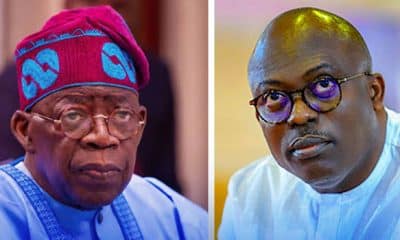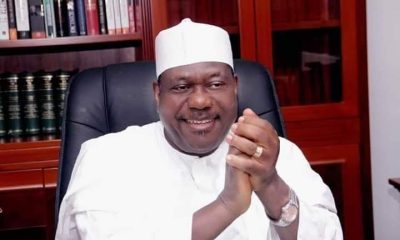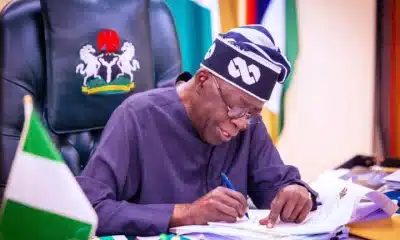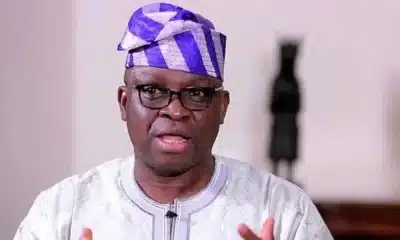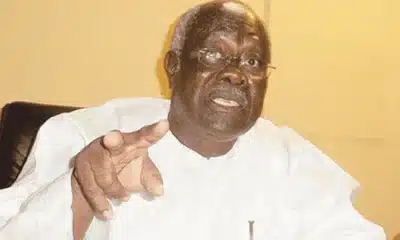Nigeria News
You Can’t Fix Economy Without New Constitution – Moghalu To Tinubu
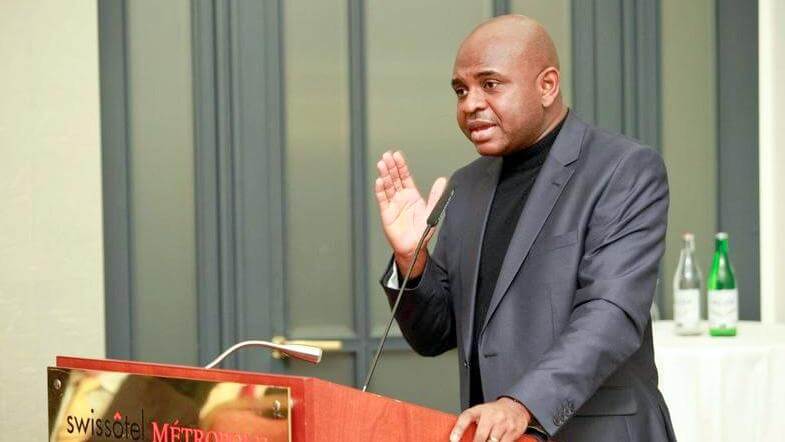
Former Deputy Governor of Central Bank of Nigeria (CBN), Kingsley Moghalu, has told President Bola Tinubu he cannot fix Nigeria’s economic challenges without a new constitution.
Professor Kingsley Moghalu said Tinubu’s response to leadership and members of The Patriots that he would look at their request to give the country a new constitution addressing the economic issues of the country was wrong.
Moghalu said only fiscal federalism which is lacking in the current 1999 Constitution (as amended) can solve economic issues of the country.
In a statement, on his X handle of Monday, he argued that the country has yet to be a nation, adding that Nigeria lacks unity of purpose.
“I respectfully disagree with President Bola Tinubu‘s response to the visit to him by The Patriots, led by former Commonwealth Secretary-General Chief Emeka Anyaoku, during which the group (of which I am a member) pressed for a new Constitution for Nigeria as a matter of urgency, and recommending specific steps to achieve this.
“While PBAT received the eminent elder statesman and his colleagues with the appropriate dignity and protocols, the President asserted that economic reform (and the crisis that it has created in the country) is his priority right now, but that his government would, of course, study the recommendations of The Patriots and respond.
“What Nigeria’s leaders fail to understand is that it will be extremely difficult, if not impossible, to bring a fundamental fix to Nigeria’s economy in the absence of a new constitution that is anchored on real federalism, and preferably anchored on a regional structure of 6-12 regions. The reason is that Nigeria is a country but not yet a nation,” he said.
The President of Institute for Governance and Economic Transformation Africa noted that Nigeria’s economy has remained natural resource-driven and unproductive because its leaders have more interest in capturing political power than harnessing the pluralistic nature of the country for economic development.
He explained that the longer the topic of a new constitution for the country is delayed because of political interests, the longer the country’s economy gets affected.
“There is no unity of purpose, no cohering worldview. And this is because the country means different things to different groups.
“As examples of economically successful nations all over the world show, real nationhood is a fundamental requirement for an economic rise based on productivity-driven transformation.
“The longer this matter is delayed (presumably because it is a sensitive and politically challenging matter) the more we will continue to struggle.
“Nigeria’s economy has remained a natural-resource driven, unproductive, and rent-seeking one for decades because the absence of stable nationhood means that the contention for political power by essentially narrow groups and vested interests is for the purpose of state capture of economic rents, and not anchored on a shared vision of a common future and destination.
“For as long as this motive is the driving force in Nigerian politics, the economy cannot be transformed,” Moghalu argued.

